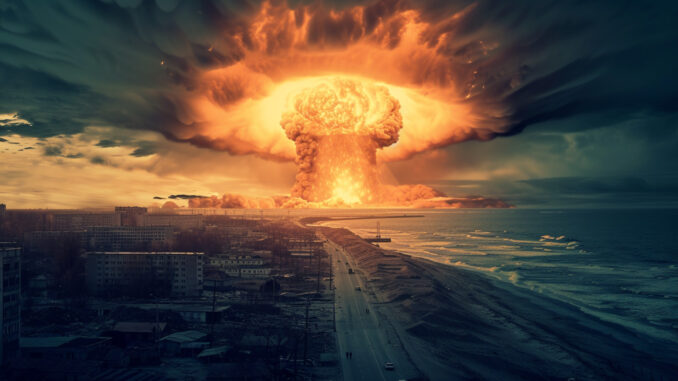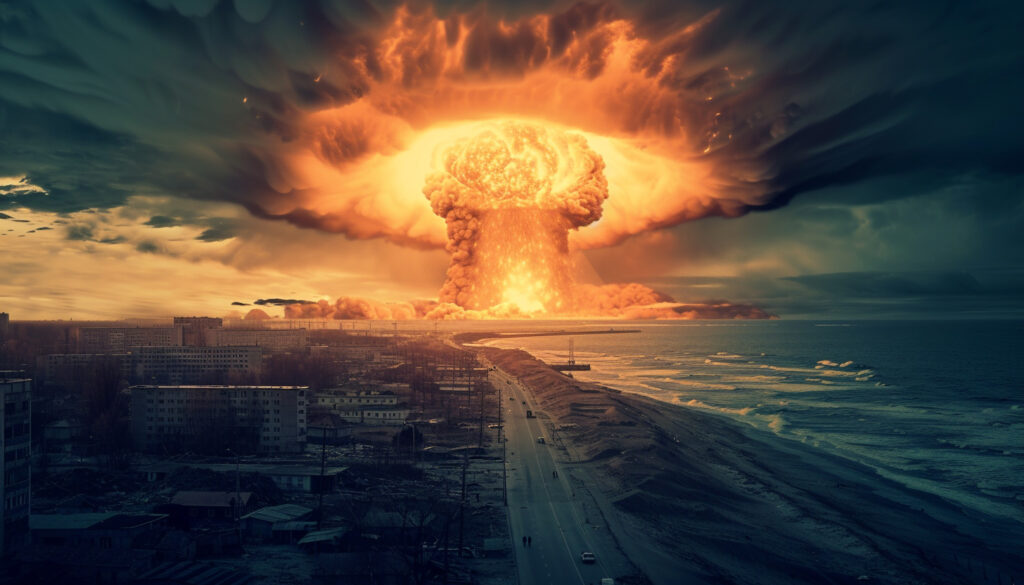
The Stockholm International Peace Research Institute (SIPRI) has published its 2024 Yearbook, revealing an alarming increase in the role of nuclear weapons in an increasingly tense geopolitical context. This article examines the main points of this report and explores the implications of these developments for international security.
Modernisation and Expansion of Nuclear Arsenals
United States and Russia
In 2024, the United States and Russia continue to dominate the global nuclear landscape, holding nearly 90% of the world’s nuclear weapons. Both nations continue to modernise their arsenals, introducing new systems and technologies. This arms race is fuelled by mutual distrust and heightened tensions, particularly around the conflicts in Ukraine and other regions.
China
China, for its part, is speeding up the development of its nuclear arsenal. It is investing massively in the construction of missile silos and the deployment of sophisticated delivery systems capable of carrying multiple warheads. This rapid expansion is causing concern, as it could trigger a new nuclear arms race in Asia.
India and Pakistan
India and Pakistan are also continuing to strengthen their nuclear capabilities. Both countries have improved their delivery systems and increased fissile material production. This regional dynamic increases the risk of nuclear conflict, especially given the history of tensions between these two nations.
North Korea
North Korea has increased its nuclear arsenal to around 50 warheads. Pyongyang is continuing its ballistic missile tests and the development of undersea nuclear capabilities. These actions are exacerbating instability in North-East Asia and posing a major challenge to international non-proliferation efforts.

Backtracking on Nuclear Diplomacy
Suspension of the New START Treaty
One of the most worrying developments of 2023 was Russia’s suspension of its participation in the New START Treaty, the last major arms control agreement between Washington and Moscow. This decision not only weakened the existing arms control structure, but also sent a negative signal to the other nuclear powers.
Withdrawal from ratification of the CTBT
Russia’s withdrawal from ratification of the Comprehensive Nuclear Test Ban Treaty (CTBT) is another blow to nuclear diplomacy. This treaty, which aims to ban all nuclear tests, is crucial to preventing the development of new nuclear weapons. Russia’s decision could encourage other nations to follow suit, increasing the risk of further nuclear tests.
Geopolitical conflicts and tensions
Conflicts in Ukraine and Gaza have exacerbated international tensions, making cooperation on non-proliferation and nuclear disarmament even more difficult. These crises have diverted attention from arms control efforts and deepened divisions between the major powers.
Implications for Global Security
The growth of nuclear arsenals and the deterioration of nuclear diplomacy increase the risk of armed conflict and nuclear proliferation. Without robust disarmament and arms control initiatives, the world could be heading for a new era of nuclear arms race.
Call to Action
It is imperative that the major powers resume dialogue and work together to restore global stability. Mutual confidence-building measures and arms control agreements are essential to prevent a dangerous escalation. Efforts must focus on reducing existing nuclear arsenals and preventing the proliferation of new weapons.
The SIPRI 2024 Yearbook highlights the growing challenges posed by nuclear weapons in an increasingly unstable world. The modernisation of arsenals, the suspension of key treaties and heightened geopolitical tensions require an urgent and coordinated response. The international community must act now to ensure a safer future and avoid a new nuclear arms race.
For more detailed information, see the SIPRI 2024 yearbook.
War Wings Daily is an independant magazine.